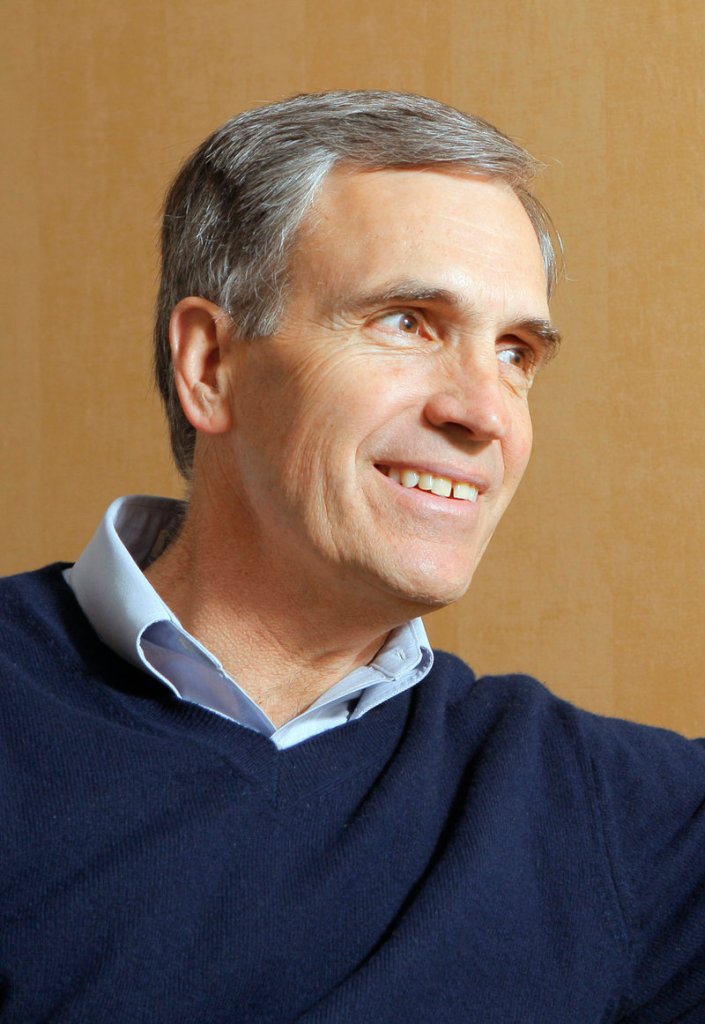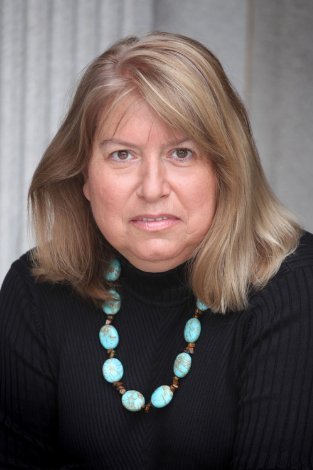Sarah Cecil can say a quiet little thanks to Maine Sen. Olympia Snowe.
The stateswoman announced her decision to not seek re-election earlier this month, long after Cecil had arranged a discussion at the Maine Festival of the Book to focus on the role of independent and swing voters in the upcoming election cycle.
With Snowe’s announcement, Cecil found herself with a hot topic and a timely talking point for the festival. On Saturday, former U.S. Rep. Tom Allen and Washington political insider Linda Killian will present a panel discussion, “Politics Today: Swing and Independent Voters, Party Divides and Ideological Convictions.”
Both panelists have new books on the subject – Killian’s is out now, and Allen’s is due for a September release.
It so happens, former Maine Gov. Angus King, an avowed independent and candidate for Snowe’s soon-to-be-vacant seat, also will participate in the book festival, though his subject isn’t political. King will talk about his memoir, “Governor’s Travels: How I Left Politics, Learned to Back Up a Bus, and Found America.”
But you can bet that politics will find a way into his discussion.
Cecil, executive director of Maine Reads, called the political coming together serendipitous.
“We certainly didn’t plan it this way, and we had no way of knowing that Snowe was going to make her announcement when we did. But we are happy to serve as a platform for this discussion,” she said.
The festival, which drew 2,000 readers last year, opens Thursday and runs through April 1, primarily on the campus of the University of Southern Maine. All events are free and unticketed, except for the opening-night gala on Friday with Pulitzer Prize-winning historian Tony Horwitz.
The festival showcases all kinds of writing, with a slant toward writers of history and biographies. This is its sixth year, and it continues to grow.
POLITICAL HOT TOPIC IN MAINE
The political panel discussion promises to be lively and newsworthy. Killian is a senior scholar at the Woodrow Wilson International Center for Scholars, a Daily Beast contributor and a political talking head. Her book is called “The Swing Vote: The Untapped Power of Independents.”
In a phone interview, Killian said the independent voters in places like Maine and Massachusetts may decide the election in November.
“I think the independents will be the deciders, to paraphrase George (W.) Bush,” she said. “There is no doubt in my mind the independent swing voters will decide this election, not only for president, but also for Congress. Forty percent of the registered voters in Maine are independent voters, and your next senator could be an independent. In Massachusetts, more than 50 percent are independent. About a third are independent in New Hampshire.”
Those voters care about the economy and are turned off by the social agenda of the conservatives. They are very much undecided, and likely won’t make up their minds until after the presidential debates in mid- to late-October, she said.
Snowe’s disgust with politics as usual in Washington reflects how many voters feel this year, Killian added.
“The independent voters just don’t understand why political people can’t be adults and work together and why they have to be so extreme and partisan,” she said. “They care about winning and losing and seizing advantage, and not what is best for the country.”
For his part, Allen plans to talk about his book, which has the working title “Dangerous Convictions: America’s Descent into Ideological Politics.”
While he will draw on his experience as a member of the U.S. House of Representatives, Allen, a Democrat from Maine, is not writing a memoir. He takes a scholarly approach to four ideological issues that have divided the two major political parties over the last two decades: Taxes and the budget, Iraq, health care and climate change. He is mostly interested in examining why these four subjects have become not unlike the fiercely partisan social issues that have historically divided the parties.
Unlike social issues, which often are rooted in religious beliefs, these four are policy-based and should be subject to a middle-ground solution. But they have become fiercely divisive, with no obvious consensus, he said. His book will examine why and offer ideas for solutions.
“What I am doing is exploring how our American faith in individualism took us to a place where this very deep hostility toward government itself has led us to places where denial becomes a public policy,” Allen said. “What I am saying, really, is these ideas that separate the parties are quintessentially American. Most of us believe in individualism or self-reliance on one hand, or community and collaboration on the other.
“But those two parts of the American experience have been split down the middle. That is what is new over the last 15 to 20 years.”
WRITERS AND MORE WRITERS
Most of the book festival activities are focused on Saturday at the Abromson Center at USM. More than 75 writers and performers will participate.
Writers will talk about their work habits and their books, generally sitting on discussion panels with their peers. The sessions include opportunities for questions and answers. Local Sprouts in downtown Portland will host a poetry party that evening.
On April 1, the festival will feature a Book Art Bazaar from 10 a.m. to 3 p.m. at the Wishcamper Center at USM, and a dramatic reading featuring the work of USM graduate Morgan Callan Rogers at Portland Stage Company on Forest Avenue.
“At other book festivals, they actually close the doors when rooms get filled. That’s what we did last year, so we have added more programs,” Cecil said.
“I think they are popular because they are social. You really have the opportunity to meet not just fellow readers, but interact with these authors. I just think that is fun for people. It adds another piece. We usually have two authors on stage together, and the personalities of the writers come out. You learn a great deal about the writing process, but I think the social piece is very big.”
At a time when many social commentators worry that we are becoming a nation of non-readers, the success of the festival and others like it suggests that those of us who do read are a dedicated lot.
Horwitz, best known for his best-seller “Confederates in the Attic,” can only theorize why book festivals and related events are so popular.
“I wonder if book clubs generally and Oprah’s in particular fueled some of this,” Horwitz said. “But there is no question that readers still like to meet authors in the flesh, despite the advance of e-books. Perhaps the fact that there are so many less independent bookstores and therefore readings may also fuel people’s appetite for these festivals. But I can’t prove it.”
Cecil illustrates the reach and lure of the festival with a story about a woman who called her from Seattle a few months ago.
“She said, ‘Your book festival looks great. I’m going to fly out for it. Where should I stay?’ ”
Staff Writer Bob Keyes can be contacted at 791-6457 or:
bkeyes@pressherald.com
Twitter: pphbkeyes
Send questions/comments to the editors.




